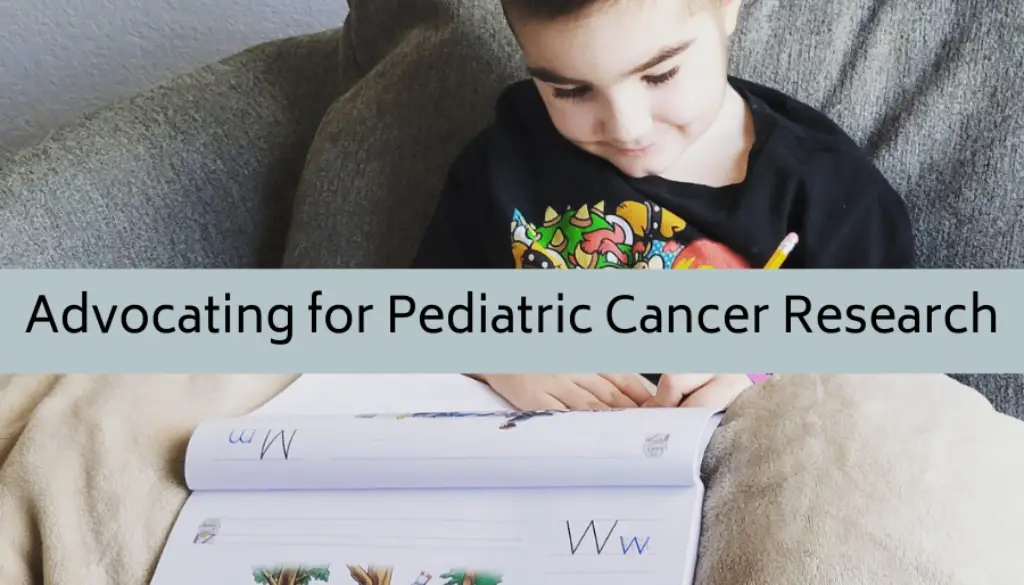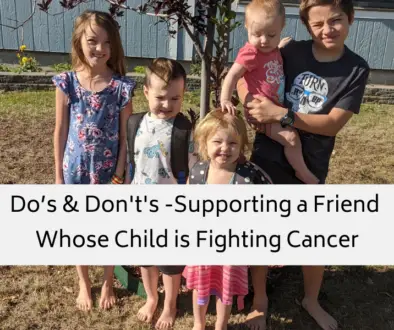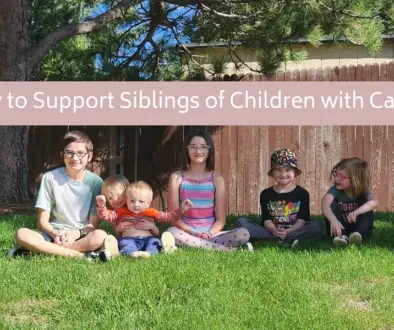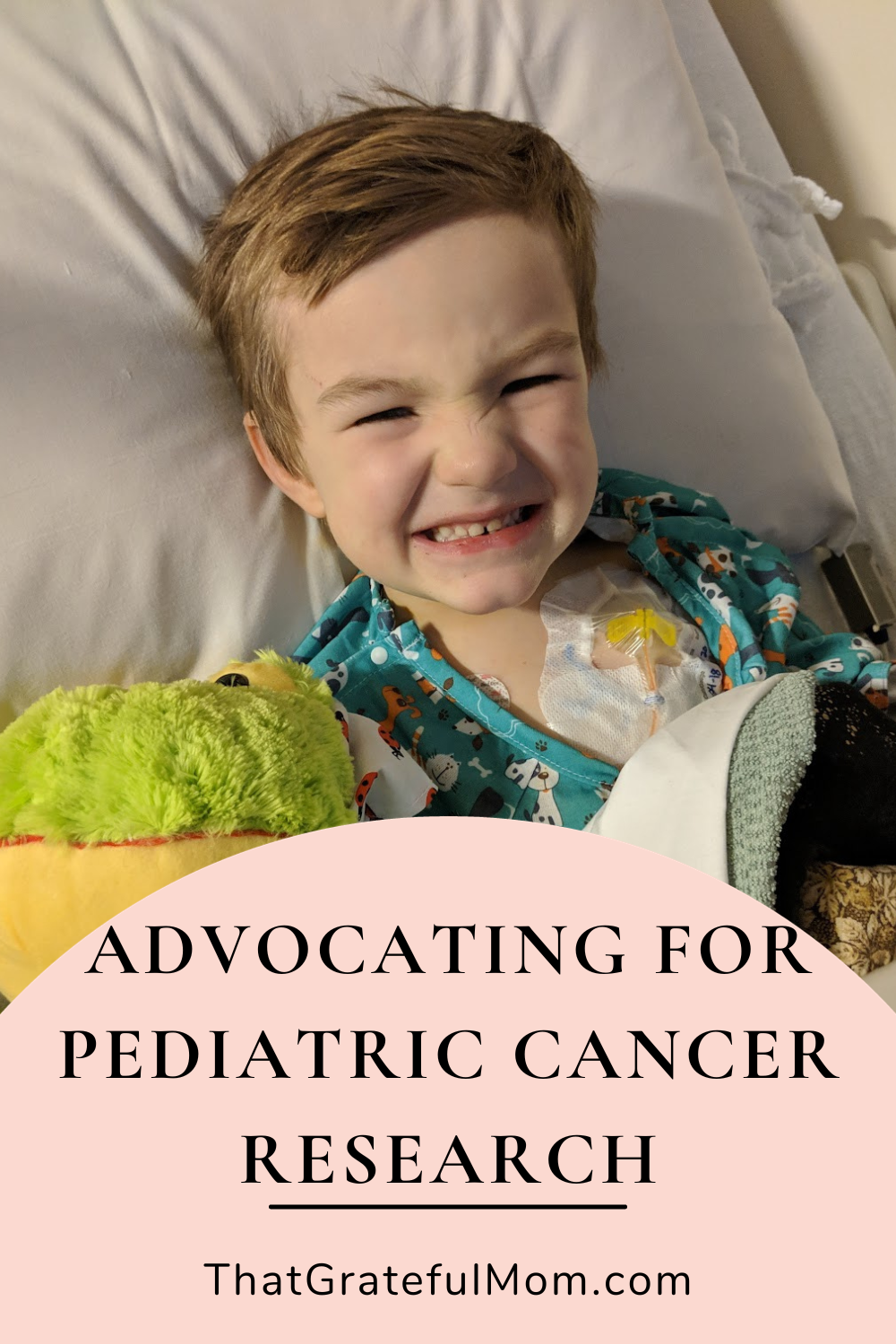
Advocating for Pediatric Cancer Research
Before our son was diagnosed with a rare form of leukemia when he was 4, I knew childhood cancer happened, and it broke my heart. I had no idea how common or severely underfunded childhood cancer is. Advocating for pediatric cancer research is crucial, but not everyone knows where to start. I want to share some ways you can help raise awareness and help advocate for pediatric cancer awareness.
Pediatric cancer research receives about 4% of the annual research budget every year. The other 96% is allocated to adult cancers. It’s nauseating how unevenly the budget is divided. Even if pediatric cancer research received 10% of the annual budget, more drugs, trials, and treatment plans could be created, allowing for more options.
If you’re new to my blog, thank you so much for being here. I’m Michaela, a homeschooling mom of six, including our son, Lucas, who has fought cancer for nearly 5 years. I share about childhood cancer because it has affected us so greatly. If you’re interested in reading more about our story or childhood cancer, here are some of my other posts:
How to Support Siblings of Children with Cancer
A Letter to My Son During His Cancer Fight
Why We Choose to Live a Low-Toxic Lifestyle
While this post may be difficult to read emotionally, advocating for pediatric cancer is crucial and needs to be discussed more. Here are some of the topics we’ll discuss today:
The urgency for more funding for pediatric cancer research
How to help advocate for pediatric cancer
Supporting pediatric cancer research organizations
Raising awareness

The urgency for more funding for pediatric cancer research
Cancer is the #1 cause of death by disease for children in America. Despite advancements in treatment and options, children are still dying due to this disease. The need for more funding and awareness is a crucial step in improving overall prognoses and treatment options for children. Advocating for pediatric cancer includes raising awareness, fighting for more funding, researching prevention, and fighting for a fairer division of funds between adult and pediatric treatments.
How to help advocate for pediatric cancer
Share your story: If you’re a family fighting for more funding because you know this life and have seen firsthand how difficult treatment and side effects can be for your child, I am so sorry that you know this life. I wish that no family knew how hard these children fought to get through treatment. You have an incredible opportunity to share your story and help advocate for pediatric cancer research. Create a platform on social media and share your story. What you’ve experienced matters, and sharing your story with others has an incredible impact.
Create a support group
Creating a safe place where families can get together, share their stories, and provide comfort to other families provides an opportunity for them to connect with others who understand the struggles and can relate to shared experiences. While raising awareness and funding is essential, providing opportunities for families to connect and find support in other ways is just as necessary.
Visit the legislative action center here
You can brush up on current issues headed to Congress that can impact cancer research and treatment options. It also allows you to receive updates when something changes so you can easily send a message to members of Congress on issues that are important to you.
Reach out to elected officials
Introduce yourself to officials, share your story, and ask for support. Let them know how important it is that children receive more funding for research and treatment options to improve overall survival rates.
Learn childhood cancer statistics
Here are some shocking statistics that you might not have known:
1 in 284 children will be diagnosed with cancer before their 20th birthday
42 children are diagnosed with cancer every day
Only 6 drugs have been approved to treat childhood cancer exclusively in the past 30 years
1 in 6 children diagnosed with cancer will not survive 5 years after diagnosis
Even with advances in medicine, some types of cancer remain incurable
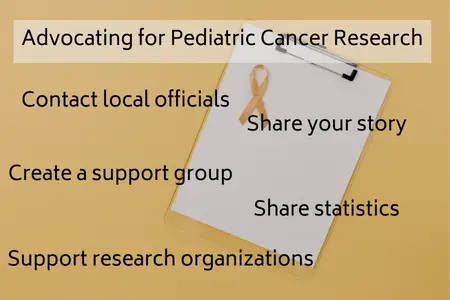
Raising awareness
Advocating for pediatric cancer research includes fighting for more funding, supporting families, and raising awareness. Before my child was diagnosed with cancer, I had no idea how drastically underfunded it was. Children deserve the same funding as adults, and astonishingly, the budget is incredibly unevenly divided between the two age groups. Children deserve equal funding and support. This starts with raising awareness for families facing the worst situation they will ever experience.
September is childhood cancer awareness month, but because of how little it’s talked about, few organizations and brands help raise awareness. The contrast in support for breast cancer awareness in October compared to childhood cancer awareness in September is astonishing and aggravating. As a mom who has seen my child go through treatment for so long, it hurts to see how little support and awareness is raised in honor of childhood cancer. Everyone knows pink ribbons mean breast cancer, but unfortunately, not many know that gold ribbons mean childhood cancer.
Conclusion
Advocating for pediatric cancer research is crucial. With children receiving only 4% of the annual budget, it often feels like they are overlooked and receive scraps compared to adult cancers. There is nothing wrong with adult cancers receiving so much funding; the problem is how unfairly the budget is divided. Adult cancers deserve funding and awareness, but so does childhood cancer.
Thank you so much for reading and working to advocate for pediatric cancer research. Families like ours will forever be so grateful for people wanting to help increase funding and bring awareness to our situation. Please remember to share this post and pin it on Pinterest.
Until next time,
-M
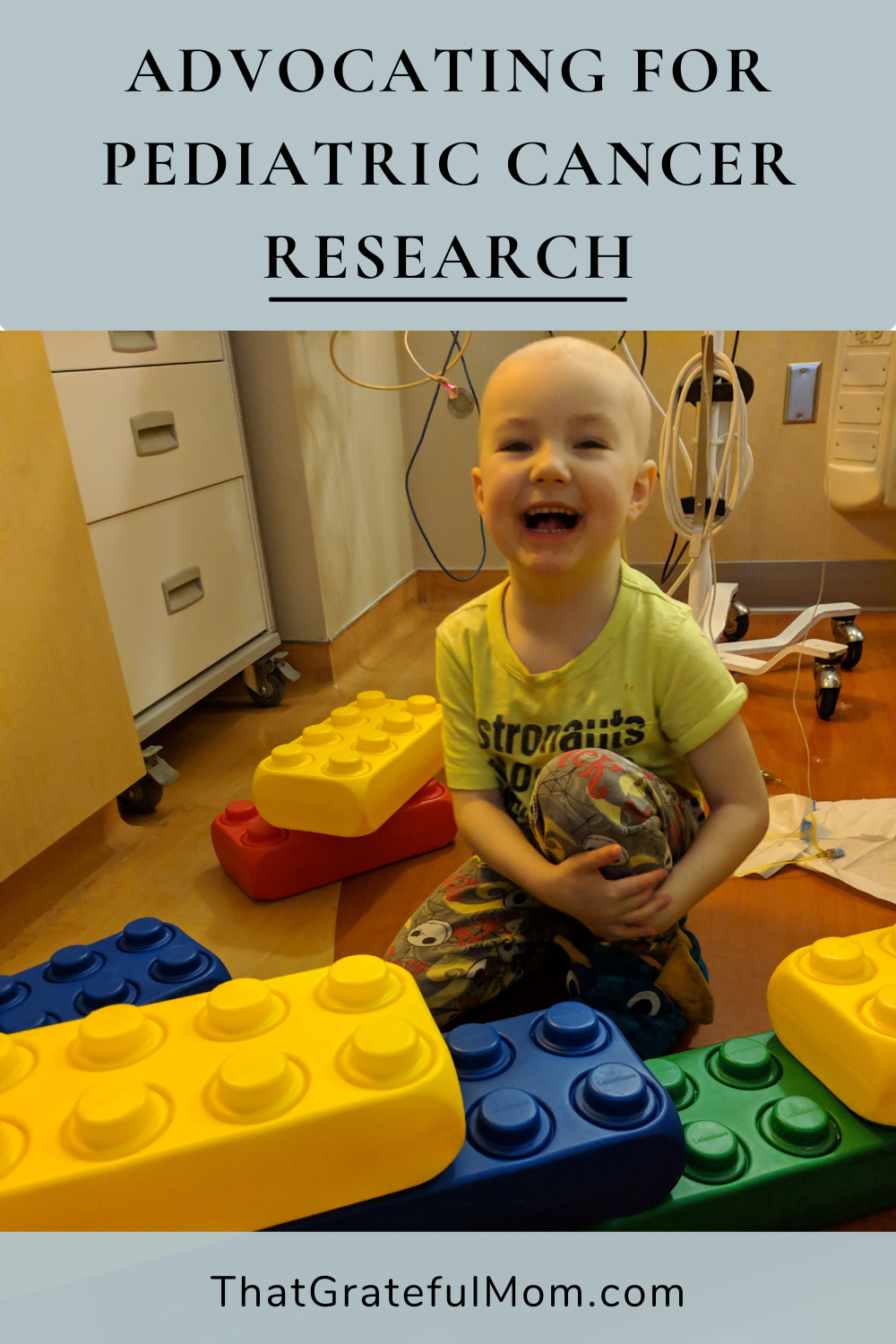
This site may contain links to affiliate websites including Amazon. I may receive an affiliate commission for any purchases made by you through Amazon or other potential affiliates and no additional cost to you. Thank you for your support.

